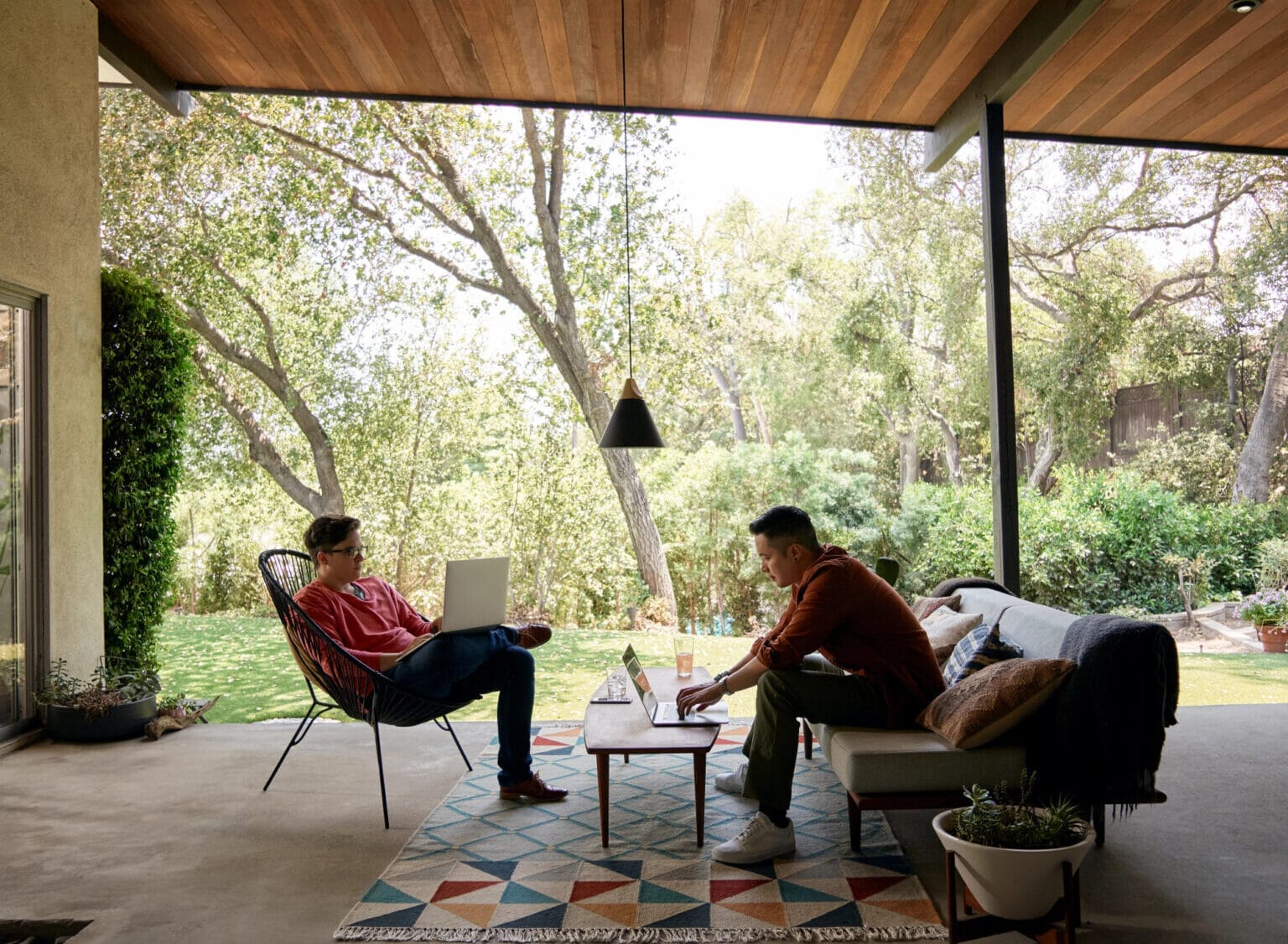Airbnb for Digital Nomads: What You Need to Know
The Rise of Digital Nomads and Their Impact on Short-Term Rentals
The rise of digital nomads represents a significant shift in the way people approach work and travel. As technology enables remote work, an increasing number of professionals are opting for a lifestyle that combines their careers with exploration. This growing demographic is reshaping the demand for short-term rentals, creating both opportunities and challenges for property owners.
Digital nomads seek accommodations that cater to their unique needs, favoring properties with reliable internet, designated workspaces, and access to local amenities. This trend is prompting hosts to rethink how they market their properties and the features they prioritize. Traditional short-term rentals are being supplemented by offerings that accommodate longer stays, fostering an environment conducive to productivity and relaxation.
As the digital nomad movement gains momentum, property owners must adapt to these evolving expectations. By understanding the preferences of this group, hosts can position themselves effectively in the market, tapping into a lucrative segment that values flexibility, community, and quality.
Adapting Your Property for Long-Term Digital Stays: Workspace and Amenities
To attract digital nomads, adapting your property to meet their specific needs is essential. A conducive workspace is paramount. This includes a dedicated area that allows for focused work without distractions. Consider providing a desk with adequate lighting, ergonomic chairs, and access to power outlets. The workspace should promote productivity and comfort, catering to long hours spent on laptops.
High-speed internet is a non-negotiable requirement. Digital nomads rely on reliable connectivity for work, video calls, and research. Investing in strong Wi-Fi and ensuring it is accessible throughout the property can significantly enhance the guest experience.
In addition to a workspace, the right amenities play a crucial role in attracting long-term guests. Comfortable furniture is important, as it contributes to both the living and working environment. Cozy seating, a good bed, and functional furniture that supports a homely feel can make a significant difference.
Kitchen facilities are another key consideration. Offering a well-equipped kitchen allows guests to prepare meals and maintain a healthy lifestyle during their stay. Basic utensils, cookware, and appliances such as a microwave and coffee maker can elevate the appeal of your property.
Marketing Your Property to Digital Nomads: Where to Advertise
To effectively attract digital nomads, it’s important to market your property through platforms and channels that resonate with this demographic. Traditional vacation rental sites are still valuable, but consider diversifying your approach to reach a broader audience.
Start by advertising on platforms specifically designed for long-term stays. Websites like Furnished Finder and Spotahome cater to professionals seeking extended accommodations. These platforms attract guests who prioritize amenities suited for work and living, aligning with the needs of digital nomads.
Social media is another powerful tool for reaching potential guests. Platforms like Instagram and Facebook allow you to showcase your property visually while engaging with digital nomad communities. Use relevant hashtags to attract attention and post content that highlights your property’s workspace, amenities, and local attractions. Engaging storytelling can create a narrative that appeals to the lifestyle of digital nomads.
Online forums and communities, such as Facebook groups or Reddit threads dedicated to digital nomad living, are also effective for marketing. Join discussions, share insights, and promote your property when appropriate. Building relationships within these communities can lead to referrals and direct bookings.
Consider creating a dedicated website or blog that focuses on digital nomad living in your area. Provide valuable resources such as tips for remote work, local coworking spaces, and insights on living in your city. This approach positions you as a knowledgeable host and helps draw organic traffic to your listing.
For hosts in competitive markets like London, partnering with professional Airbnb management services can streamline operations and attract digital nomads by optimizing property offerings and marketing strategies.
Highlighting Flexibility: Check-In/Check-Out Times and Long-Term Stays
For digital nomads, flexibility in check-in and check-out times is a significant factor when choosing accommodations. Unlike traditional travelers, many digital nomads have unpredictable schedules, often arriving at odd hours or extending their stays based on work commitments. Offering flexible booking options can set your property apart and attract this growing demographic.
To accommodate varying schedules, consider implementing automated check-in solutions. Smart locks or keyless entry systems allow guests to access the property without the need for in-person coordination, making late arrivals and early departures hassle-free. This convenience not only improves guest satisfaction but also minimizes the workload on hosts.
Clear communication about check-in and check-out flexibility is essential. Highlight these options in your property listing and during the booking process. Transparency helps set expectations and reassures potential guests that their needs will be met.
For extended stays, create a structured yet adaptable approach. Offering discounts for longer bookings can incentivize digital nomads to choose your property over others. Consider providing a dedicated workspace for guests on extended stays, as this will appeal to their lifestyle and increase the likelihood of positive reviews.
Creating a Community Feel: Engaging with Local Events and Resources
For digital nomads, a sense of community can significantly enhance their experience while staying in a new location. Hosts can foster this community feel by actively promoting local culture and networking opportunities, making their properties more appealing to long-term guests.
Start by curating a list of local events, workshops, and meetups that align with the interests of digital nomads. Highlighting these activities in your property description or providing flyers in the accommodation can encourage guests to immerse themselves in the local culture. Partnering with local businesses to offer discounts or exclusive deals for guests can further strengthen this connection.
Providing information about nearby co-working spaces is crucial. Many digital nomads rely on these environments for productivity and networking. Make a list of co-working options in your area, along with their amenities, pricing, and proximity to your property. This not only aids guests in finding suitable workspaces but also demonstrates that you understand their lifestyle and needs.
Social hubs, such as cafes, community centers, and parks, are also vital for fostering connections among travelers. Recommend popular spots for socializing, networking, or relaxing after work hours. Consider hosting small events or meetups at your property to bring guests together and encourage interaction.
By creating a sense of community and actively engaging with local resources, hosts can significantly enhance the experience for digital nomads. This approach not only leads to positive reviews but also encourages repeat visits and word-of-mouth referrals, benefiting your property in the long run.
In Paris, utilizing a dedicated conciergerie airbnb service can help property owners cater to the needs of digital nomads, ensuring their stays are comfortable and well-supported.
Capturing the Growing Digital Nomad Market
The digital nomad trend presents a unique opportunity for Airbnb hosts willing to adapt their offerings. By understanding the specific needs of this demographic—such as the demand for flexible check-in and check-out options, dedicated workspaces, and a sense of community—hosts can position their properties to attract and retain long-term guests.
Key strategies include optimizing your property with essential amenities like high-speed internet, comfortable furnishings, and access to local resources. Additionally, marketing your property effectively through the right channels and promoting nearby co-working spaces and social hubs will resonate with digital nomads looking for more than just a place to stay.
By fostering a welcoming environment and actively engaging with local culture, hosts can create memorable experiences that lead to positive reviews and repeat bookings. Embracing this shift in traveler behavior will not only maximize your property’s potential but also solidify your position in a competitive market. Adapt your approach to cater to digital nomads, and you’ll tap into a lucrative segment of the travel industry that values flexibility and community.




